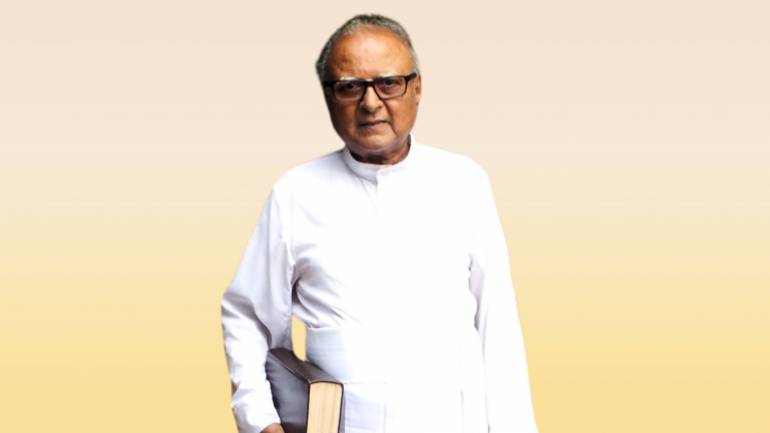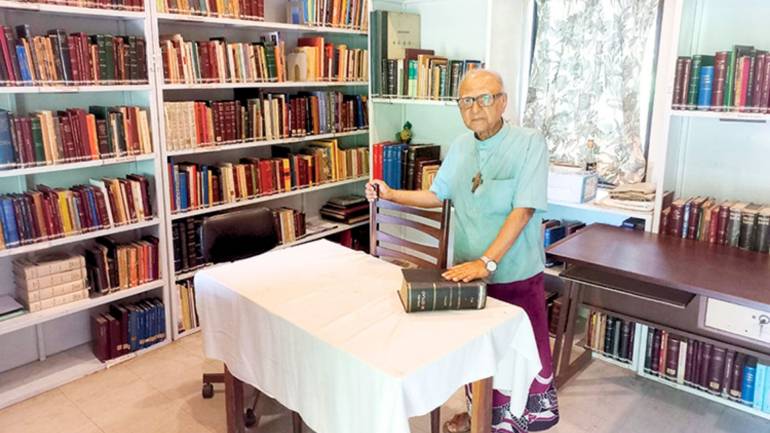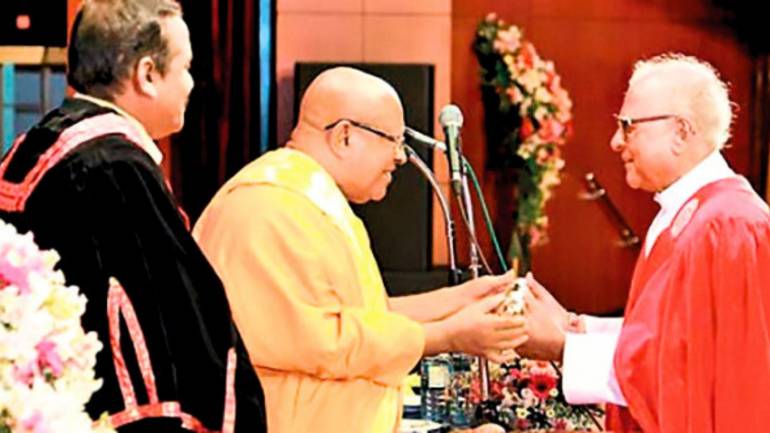Building Bridges at 92: Sri Lankan Jesuit Aloysius Pieris

At 92 years old, Jesuit Father Aloysius Pieris remains a towering figure in the intellectual and spiritual life of Sri Lanka and Asia. A theologian, Buddhist scholar, and indologist, Father Pieris has spent his life building bridges and promoting peace in a land scarred by ethnic conflict and religious division. His most enduring legacy is the Tulana Research Centre for Encounter and Dialogue a beacon of interreligious harmony near Colombo that embodies his unique theological vision.
Early Life and Jesuit Formation
Born on April 9, 1934, in Ampitiya, a suburb of Kandy in Sri Lanka, Pieris showed academic promise from an early age. He studied at St. Aloysius’ College in Galle, a Jesuit-run institution, before joining the Society of Jesus in 1953. His formation as a Jesuit combined rigorous study with deep spiritual discipline a duality that would define his life’s work.
Pieris pursued philosophy at Sacred Heart College in Shenbaganur, India, and later theology at the Pontifical Theological Faculty in Naples, Italy. He earned a Ph.D. in Buddhist Philosophy from the University of Sri Lanka in 1971 and a bachelor’s degree in Pali and Sanskrit from the University of London in 1961. In recognition of his groundbreaking work, Tilburg University in the Netherlands awarded him an honorary doctorate in theology in 1987 for his pioneering development of an Asian Theology of Liberation.
A Scholar of Global Renown
Father Pieris has taught at more than 20 prestigious institutions worldwide, including Oxford, Cambridge, the Gregorian University in Rome, Union Theological Seminary in New York, and Vanderbilt University. His scholarship rooted in Asian religious traditions and global theological discourse has produced over 20 books and 300 academic articles, translated into a dozen languages. Among his seminal works is The Genesis of an Asian Theology of Liberation, in whichhe argues that any authentic theology for Asia must grapple with both poverty and religious pluralism. He calls for a theology born from listening not only to Scripture, but also to the suffering of the poor and the wisdom of ancient traditions like Buddhism.
Founding the Tulana Research Centre
In 1994, Fr. Pieris founded the Tulana Research Centre for Encounter and Dialogue in Kelaniya, near Colombo, in response to the 1971 youth uprising in Sri Lanka, which was shaped by Marxist influences. His mission focused on two pressing issues: the socio-political frustrations of educated but marginalized rural youth, and the spiritual depth of Buddhism, the country’s majority religion. “Tulana” derives from a Sanskrit word meaning discernment, and the name encapsulates the spirit of the center: a space for deep reflection, dialogue, and action.
Initially a retreat house for Jesuits, Tulana evolved into a mini-university, a social animation center, and a forum for interreligious dialogue particularly between Buddhists and Christians, the two largest religious communities in the country. Sri Lanka’s civil war (1983–2009), fueled by ethnic, political, and religious tensions, made this mission all the more urgent. During the height of the conflict, Tulana hosted dissident monks and activists, creating safe spaces for courageous dialogue on peacebuilding and reconciliation.
Mission and Impact
Tulana is a living community where theory and praxis meet. It combines academic rigor, cultural expression, and pastoral outreach, engaging artists, theologians, scholars, and marginalized communities alike. The center houses the Fr. S.G. Perera Memorial Oriental Library, named after one of Sri Lanka’s most distinguished Jesuit historians. This world-class library features extensive collections on Buddhism, Christian theology, Indology, Western thought, art, media studies, and Sri Lankan history. It serves as a crucial resource for undergraduate and postgraduate students from both Sri Lanka and abroad.
Beyond books and lectures, Tulana’s mission extends to grassroots engagement. The center has supported initiatives such as a facility for children with hearing impairments and projects with underserved rural communities. An on-site art gallery showcases interreligious themes, including Buddhist interpretations of Christian symbols, offering a unique approach to dialogue through artistic media.
A Life of Peacebuilding
What sets Father Pieris apart is his commitment to theology as praxis. His writings go beyond academic exploration they are deeply informed by social and political analysis. He urges that any theology for Asia must take into account the realities of poverty, pluralism, and power. Religion, in his view, must be a force for liberation and healing not division.
This perspective made him a key resource in the 1980s for the Federation of Asian Bishops’ Conferences (FABC), where he helped shape a distinctly Asian Catholic theology dialogical, incarnational, and deeply rooted in the continent’s spiritual traditions.
In 2015, the University of Kelaniya, Pieris’ alma mater, conferred upon him an honorary Doctor of Literature award for his contribution to interreligious dialogue and human liberation. Former students and colleagues describe the recognition as much more than an academic accolade; it was a national tribute to a life lived in service of peace and justice.
Ongoing Legacy
Now in his tenth decade, Fr. Pieris continues to teach, write, and mentor. Every day, he spends hours engaging with students and visitors at Tulana. His clarity of thought and depth of wisdom continue to inspire those committed to peace, interfaith understanding, and theological renewal.
His intellectual contributions do not imitate European theological formulas. Instead, they emerge from Asia’s soil, attentive to the cries of the poor and the spiritual insights of its ancient traditions. For Pieris, theology is not an abstract discipline it is a spiritual act. He lives what he teaches: “Theology is spirituality, and spirituality is theology.”
In a world often torn by sectarian violence and misunderstanding, Father Aloysius Pieris offers a different path one of listening, discernment, and loving dialogue. Through the Tulana Research Centre, his books, lectures, and personal witness, he has helped build bridges across some of Sri Lanka’s deepest divides. His work shows us that interreligious harmony is not merely possible it is essential. And with courage, humility, and intellectual openness, it can become a lasting reality.










